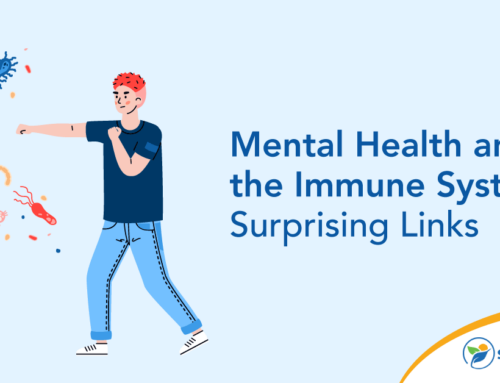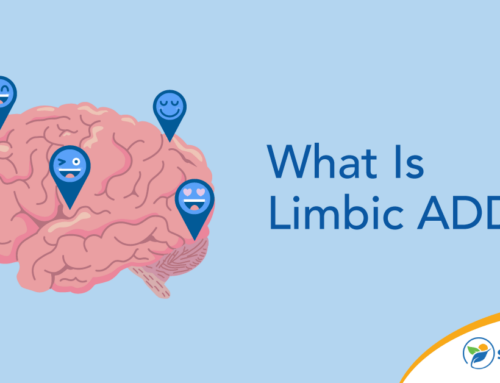A highly sensitive person (HSP) experiences the world in ways others may struggle to relate to. An estimated 20% of the global population is HSP, and the prevalence makes it crucial to understand how these individuals think and feel. Sound, movement, and other environmental factors can trigger the emotionally sensitive person in your life. HSPs may also be referred to as, “hyper-sensitive”, “emotionally-sensitive”, or “super-sensitive” people. “Empath” is another term often synonymous with HSPs as they can possess a higher than usual level of empathy.
Taking steps to understand them is the foundation of learning to support super-sensitive people and create the ideal environment for them to thrive. This article will examine HSP, the typical signs, and self-care strategies.
What Is a Highly-Sensitive Person?
It is common for highly sensitive people to be told they are too sensitive throughout life, and many of these individuals experience substantial depth in their feelings compared to others. Overstimulation is common for super-sensitive people who are hyper-aware of their surroundings and environment.
Common Signs of an HSP
There are four elements that determine if someone is an HSP, and understanding those elements can help you assist and support your loved one.
Here is a closer look:
Depth of Processing
Many HSPs notice more about their surroundings, but that’s not what sets them apart from other individuals. The difference is the depth of processing, including higher levels of empathy, an active imagination, and powerful feelings for others.
Overstimulation
Due to the deeper level of processing, it is much easier for an emotionally sensitive person to become overstimulated. The increased processing can result in feelings of stress and anxiety in daily situations.
Emotional Intensity
Another factor that makes someone an HSP is the intensity with which they feel their emotions. These individuals have a much broader spectrum of feelings than other individuals; the highs are much higher and the lows are much lower.
Sensory Sensitivity
A low tolerance for sensory input is a clear sign of an HSP. These super-sensitive people notice subtle changes in their environment. They are also more likely to become overstimulated by crowds, noise, and lights.
Challenges Faced by HSPs
The increased sensitivity experienced by HSPs can create challenges in daily life. Understanding those challenges can help you better understand yourself or your loved one. Here are tips you can use to overcome those challenges.
Criticism Sensitivity
One of the most difficult challenges to overcome as an HSP is facing criticism. Hypersensitive people are more likely to be highly critical of themselves. The result is elevated levels of depression and anxiety.
The sensitivity can also spill over into relationships. Many HSPs struggle with conflict in their friendships and relationships. Saying, “No”, can cause HSPs to feel anxious about letting others down.
Over-Planning
Another challenge many super-sensitive people face is over-planning. Due to people-pleasing tendencies, HSPs tend to accept every invitation, resulting in a crowded schedule. The stimuli from these events can cause these sensitive individuals to want to seek refuge in a dark room.
The best approach is to ensure the HSP has time built into their schedule to decompress and avoid burnout.
Stress From Complicated Social Situations
One of the most substantial challenges a hyper-sensitive person faces is navigating complex social situations. Attempting to hold a conversation with multiple people with loud music in the background can feel overwhelming and lead to elevated feelings of stress.
Navigating Relationships and Social Interactions
Despite the challenges HSPs face, there are several things they can do to manage situations and protect themselves from stressful situations. Setting boundaries is an excellent way to prevent over-scheduling and stress from social interactions. An HSP can set a boundary by agreeing to go out with friends for a few hours before returning home.
Journaling and mindfulness practices are another effective way to navigate relationships; using these methods of reflection can help an HSP work through the powerful emotions they are feeling. Both options are ideal for self-care to maintain mental health.
Another tip HSPs can use to navigate relationships is building in self-care time after social events and stressors. An emotionally sensitive person can use the breaks to make a full recovery and avoid added stress.
The most substantial change a super-sensitive person can make to protect their health is learning to say, “No“. Overcoming the fear of disappointing others will help your friend or loved one avoid stressful situations that can damage their health and wellness.
Self-Care Tips for HSPs
For many highly sensitive people, daily life can feel overwhelming, and the grind can leave them feeling exhausted. While that sounds daunting, there are several self-care tips HSPs can use to overcome the stress, anxiety, and fatigue they face. Read on to learn the best tips to try.
Create Time to Recover
Intense sensory experiences can leave super-sensitive people feeling drained and exhausted. The most effective way to overcome these feelings of fatigue is to create time in your schedule for rest and recovery.
Use weekends to plan extra periods for rest. Vacation days are another tool an HSP can use when they begin to feel burnout creeping in.
Connect With Nature
Nature is one of the best resources for self-care when supporting an HSP. A mere 10 minutes spent in nature can yield profound health benefits.
If the emotionally sensitive person in your life is feeling depressed or overwhelmed, encourage them to plan a hike or take a walk in the park. Spending time in nature is ideal for calming the mind and producing endorphins, which increase feelings of peace and happiness.
Find Creative Outlets
Creative outlets like yoga, music, and painting are effective, enjoyable ways to clear the mind. Encourage the HSP in your life to explore these creative outlets to find peace and a sense of meaning or purpose. Super-sensitive people can use these activities to process the deep emotions that they feel.
Find Support for the Highly Sensitive Person in Your Life
A highly sensitive person perceives the world and their environment on a deeper level, resulting in powerful emotions that could result in anxiety and depression. Supporting the HSP in your life starts with understanding what they are experiencing and how you can help.
The professional staff at Sunlight Recovery has the knowledge and experience to support highly sensitive people in overcoming the challenges they face. Contact us for guidance today if you’re concerned about your loved one’s mental wellness.







